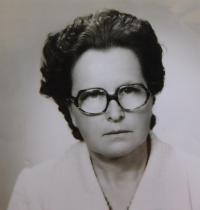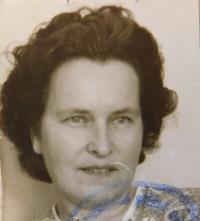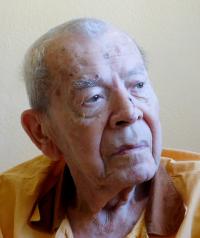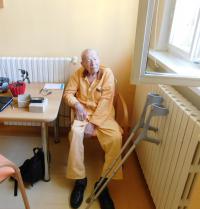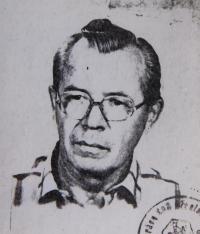Nothing worked on them, only execution

Download image
Oldřich Komenda was born on 3 December 1924 in Břeclav. He attended a Czech school, and he was a member of the local Scout troop. He and another eleven boys also established the so-called tramp settlement of Koráb (The Ship; “tramping” is a Czech hiking and camping movement with an American Wild West style - trans.). The met regularly in their club room, and they spent every summer at a cottage in the village of Dobrá Voda in the Little Carpathians in Slovakia. Following the Munich Agreement, Břeclav was occupied by Nazi Germany. The tramping boys did not want to sit idle, and so they joined the resistance. However, they were found by the Gestapo, and Oldřich Komenda spent nearly two years in the Flossenbürg concentration camp. He remembers the constant hunger, beatings, executions, suicides, the dead bodies lying everywhere and the unbearable stench of burnt cadavers. In April 1945 he was sent on a death march to the Dachau concentration camp - only about half of the prisoners survived the journey. When he came home, he spent a year recovering from tuberculosis at a sanatorium in Paseka. After the war he joined the Communist Party of Czechoslovakia and became a member of the People’s Militias. At first he worked at the waterworks warehouse in Břeclav, then he was the director of the District House of Pioneers and Youth, and then until his retirement he was posted in the Defence Department of the ceramics factory in Poštorná. In 2016 he still lived with his wife in Břeclav.
